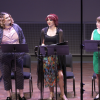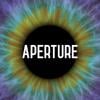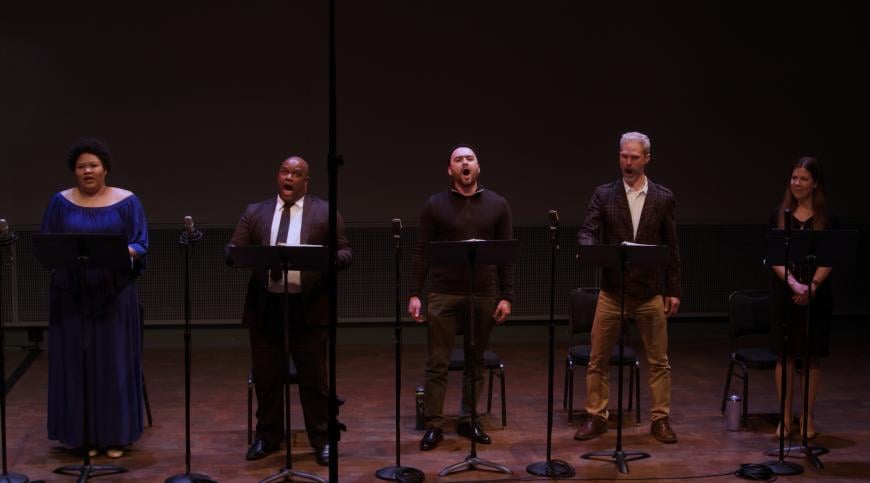
With Snapshot, West Edge Opera’s annual showcase of concert-form excerpts from new operas, the company opens its research-and-development wing to the public. While there’s no promise or expectation of full productions to come, sometimes it happens. Nathaniel Stookey and Eisa Davis’s Bulrusher, which made a strong impression in the 2021 Snapshot, will receive its world premiere this August. The story of an African American girl coming of age in 1950s Mendocino is featured in West Edge’s 2024 summer festival.
This year’s sampler of four works, presented Saturday, March 2 at Berkeley’s Hillside Club and Sunday, March 3 at the Taube Atrium Theater in San Francisco, affirmed the stylistic range of artists drawn to the form. The bill opened with a poetically lyrical, politically inflected meditation on Sacajawea and the Lewis and Clark expedition and closed with a raucous satire about crackpot health cures and breakfast cereal.
The most poignant and affecting portion of the program, heard Sunday at the Atrium Theater, came in Least of My Children, with music by Loren Linnard and libretto by Donald Briggs. In a bittersweet backstory, this chamber opera about the 1980s AIDS epidemic has languished unproduced for 35 years, since its composition in 1989. Linnard (in 2016) and Briggs (in 2007) died after years of unsuccessful attempts to mount the piece.
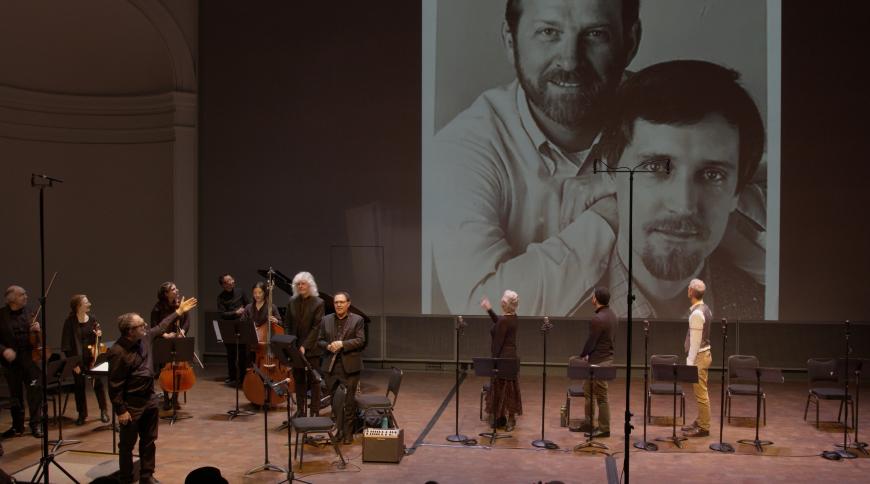
The drama is both straightforward and emotionally wrenching. Mateo (played by the translucent Sergio González) is dying of AIDS in Chicago, with his partner Lucas (the flinty, empathic Daniel Cilli) as his stressed but determined caretaker. Mateo’s deeply religious and homophobic mother (Theresa Cardinale, gamely overcoming a raw voice) arrives from Mexico, planning to bring her son back home with her.
In choice, naturally singable lines, the characters circle and clash, withdraw and confront. Briggs’s dialogue balances unvarnished feeling — “I am afraid,” Mateo confesses in one anguished phrase — and granular detail. When Mateo laments his loss of memory, Lucas playfully challenges him: “What color are Judy Garland’s eyes?”
Linnard’s subtle, judicious music (Jonathan Kuhner conducted the Earplay chamber ensemble) captures bravery and pride, pain and gallows humor while keeping the focus on the drama. A quizzical piano phrase, a liquid skein from the strings, and a jaunty show tune riff contribute without distracting. This brief, piercing episode was more than enough to suggest a work of deeply felt amplitude.
Nu Nah-Hup, with music by Shoshone-Navajo-Okanogan flutist Hovia Edwards and composer Justin Ralls and libretto by Rose Ann Abrahamson, used its long vocal and musical lines (liquidly sung by Katherine Pracht in a supertitled Native American language and conducted by Mary Chun) to conjure an awe-inducing scene on a pristine beach.
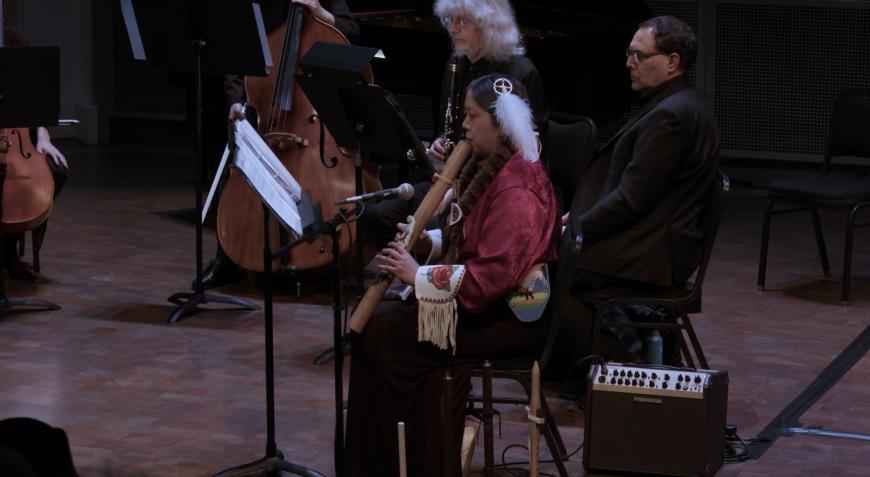
York (C. Michael Belle), an expedition slave to Clark (Cilli), sang an arching hymn-like figure, enriching the lush musical texture, which was also enhanced by Edwards’s plangent wooden flutes. In an exchange with Cilli’s officious Clark, Pracht’s heroine shifted to English in a telling change in the white explorer’s power-dynamic supremacy.
Madame Theremin, by composer Kennedy Verrett and librettist George Kopp, takes as its subject the Black ballet dancer Lavinia Williams (a staunch Rayna Mia Campbell), who was married to the inventor of the eponymous electronic musical instrument. A softly percolating jazz beat set the ironically louche mood for a racially fraught encounter, when Williams and a Black friend (Belle) are asked to take the freight elevator at a posh hotel. Despite raising the musical stakes with some angry flute and clarinet outbursts, Theremin bogged down in stereotypical action and an overworked exchange on the word “freight.”
The Road to Wellville (music by Matt Boehler, libretto by Tony Asaro) previewed an ambitious narrative and lively pastiche score. It’s an American con man story, based on the T.C. Boyle novel about quackery and breakfast food, set in Battle Creek, Michigan. The excerpt, which spun its wheels before digging in, capped off the program with a brassy, queasy double entendre about enemas.
Once again West Edge’s Snapshot proved that you never know to what heights or depths new operas might take you.



